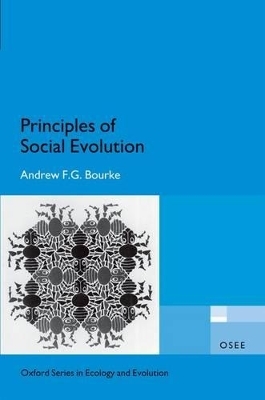
Principles of Social Evolution
Oxford University Press (Verlag)
978-0-19-923116-4 (ISBN)
Living things are organized in a hierarchy of levels. Genes group together in cells, cells group together in organisms, and organisms group together in societies. Even different species form mutualistic partnerships. Throughout the history of life, previously independent units have formed groups that, in time, have come to resemble individuals in their own right. Evolutionary biologists term such events "the major transitions". The process common to them all is social evolution. Each transition occurs only if natural selection favours one unit joining with another in a new kind of group. This book presents a fresh synthesis of the principles of social evolution that underlie the major transitions, explaining how the basic theory underpinning social evolution - inclusive fitness theory - is central to understanding each event. The book defines the key stages in a major transition, then highlights the shared principles operating at each stage across the transitions as a whole. It addresses in new ways the question of how, once they have arisen, organisms and societies become more individualistic.
Andrew Bourke graduated with a degree in Zoology from the University of Cambridge in 1983, before conducting a PhD on the social biology of slave-making ants at the University of Bath. In 1988 he obtained a Junior Research Fellowship from Jesus College, Cambridge, which he held until 1991 in the Department of Zoology, University of Cambridge. In 1992, he moved to the Institute of Zoology, Zoological Society of London, where he was a research fellow and latterly a Reader. He has held his present position as Professor of Evolutionary Biology at the University of East Anglia since 2006. His research focuses on the evolution of social behaviour, especially in ants and bees. He has published around 50 articles on the conservation, behaviour, ecology, evolution, and genetics of the social insects, and is coauthor of the book 'Social Evolution in Ants'. From 2000 to 2006, he was an editor, then Editor-in-Chief, of the journal 'Behavioral Ecology'.
Preface and Acknowledgements ; 1. An Expanded View of Social Evolution ; 2. A Primer in Inclusive Fitness Theory ; 3. The Major Transitions in Light of Inclusive Fitness Theory ; 4. Social Group Formation ; 5. Social Group Maintenance ; 6. Social Group Transformation ; 7. Synthesis and Conclusions ; References ; Index
| Erscheint lt. Verlag | 6.1.2011 |
|---|---|
| Reihe/Serie | Oxford Series in Ecology and Evolution |
| Zusatzinfo | 25 black and white illustrations |
| Verlagsort | Oxford |
| Sprache | englisch |
| Maße | 157 x 234 mm |
| Gewicht | 494 g |
| Themenwelt | Geisteswissenschaften ► Psychologie ► Sozialpsychologie |
| Naturwissenschaften ► Biologie ► Allgemeines / Lexika | |
| Naturwissenschaften ► Biologie ► Evolution | |
| Naturwissenschaften ► Biologie ► Zoologie | |
| Sozialwissenschaften ► Soziologie | |
| ISBN-10 | 0-19-923116-8 / 0199231168 |
| ISBN-13 | 978-0-19-923116-4 / 9780199231164 |
| Zustand | Neuware |
| Haben Sie eine Frage zum Produkt? |
aus dem Bereich


